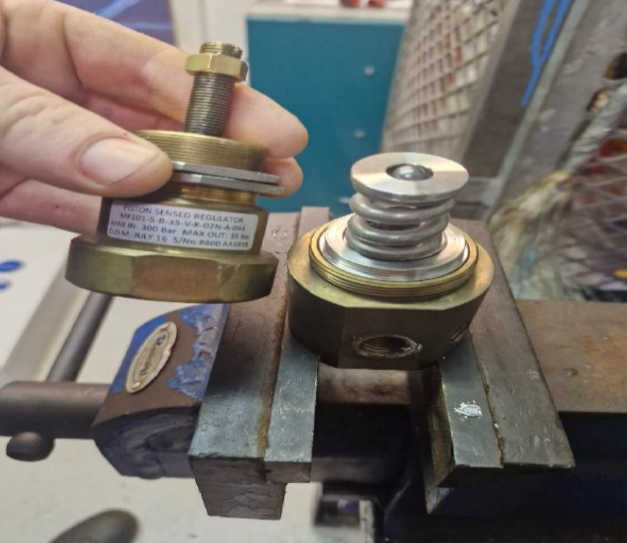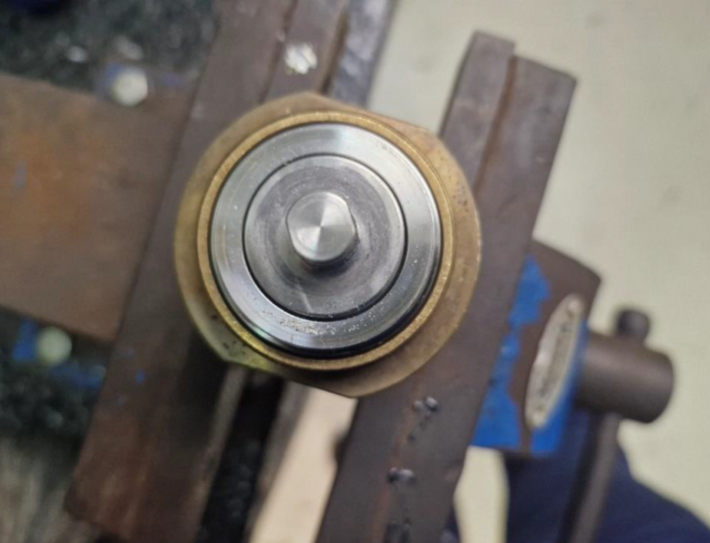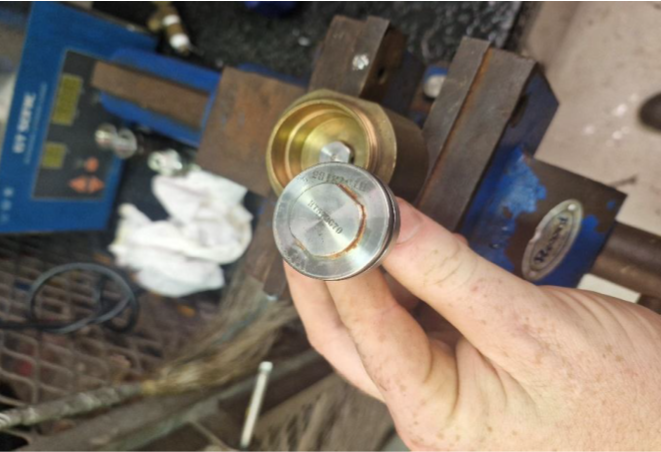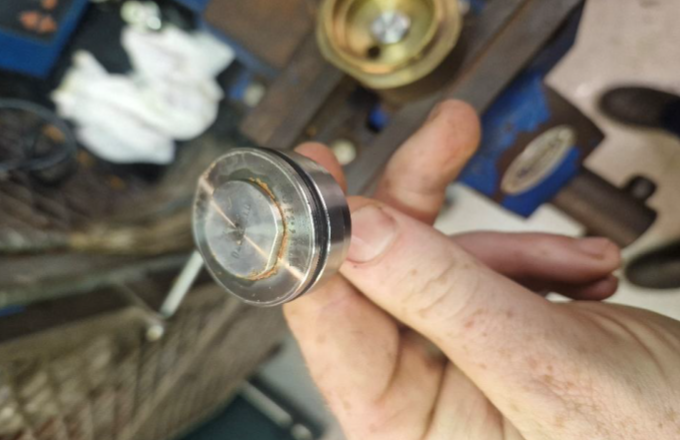Loss of pressure to diver’s primary air supply
What happened
A diver working underwater experienced a pressure drop from the primary HP supply regulator. The diver was recovered safely, and tests were subsequently carried out on the surface, and the same pressure loss was observed. The regulator was removed from the panel, stripped, and inspected. During the removal of the sensing assembly, old/dry lubricant was observed on the bottom end. The sensing assembly was checked by moving the shaft up and down simulating what would occur within the regulator during use. Friction between the shaft and the sealing face was evident, as it would not move as freely during the up and down movements through the sealing face due to the dry lubricant.
The test identified that this sticking would occur when there is light breathing from the diver as there would not be sufficient pressure on the sensing assembly to cause it to move freely up and down regulating the pressure. In contrast, with heavy breathing, there is ample instant pressure on the assembly which would then allow it to regulate the pressure better.
What went right?
- The diving supervisor was vigilant and experienced and observed the pressure drop as it was happening. He was able to manage the primary air supply while recovering the diver without the need to activate a secondary air supply and before any possible dangerous situation developed;
- The technicians on board were able to quickly diagnose and test the issue within a very short time and with the tools available;
- Sufficient spare regulators were available for component-level removal and replacement, allowing diving operations to continue swiftly.
What went wrong?
Whilst there was planned maintenance on the regulators conducted following the requirements of IMCA D018, the regulators did not appear to have had sufficient internal inspection, cleaning, or re-lubrication according to their duty cycle.
What was the cause
The internal lubricating grease had dried and was no longer providing lubrication, rather it acted to restrict the movement of the machined parts.
Lessons and actions
- Diving regulators require more regular checks when in high-use conditions. Regulators should be rotated through high-use (Diver 1/Diver 2) and low-use (Stand by and spare) positions within the system to ensure equal usage.
Action taken
- Increased planned maintenance schedule frequency for checks, test and cleaning of seal kits, sensors and panel regulators to every 6 months;Tested and cleaned all other regulators on the panel and gas racks flow tested and cleaned, and changed planned maintenance schedule to every 6 months;Keep careful records of lubricant identification and batch number;Ordered newly updated sensors and more seal kits with new and more sensitive sensors;
- Liaise regularly with manufacturer for any information on new types or upgrades that may be available.




Members may wish to refer to:
Safety Event
Published: 16 July 2024
Download: IMCA SF 14/24
IMCA Safety Flashes
Submit a Report
IMCA Safety Flashes summarise key safety matters and incidents, allowing lessons to be more easily learnt for the benefit of all. The effectiveness of the IMCA Safety Flash system depends on Members sharing information and so avoiding repeat incidents. Please consider adding [email protected] to your internal distribution list for safety alerts or manually submitting information on incidents you consider may be relevant. All information is anonymised or sanitised, as appropriate.
IMCA’s store terms and conditions (https://www.imca-int.com/legal-notices/terms/) apply to all downloads from IMCA’s website, including this document.
IMCA makes every effort to ensure the accuracy and reliability of the data contained in the documents it publishes, but IMCA shall not be liable for any guidance and/or recommendation and/or statement herein contained. The information contained in this document does not fulfil or replace any individual’s or Member's legal, regulatory or other duties or obligations in respect of their operations. Individuals and Members remain solely responsible for the safe, lawful and proper conduct of their operations.
